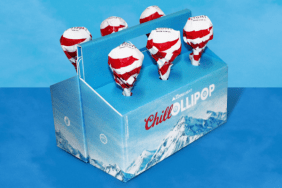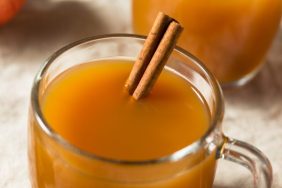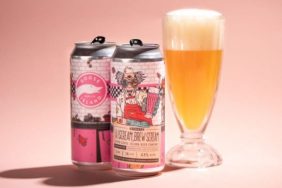The shot and beer is the simplest of drinks, but ask today’s bartenders, and they’ll explain to you why simple isn’t always bad. Let’s break it down. In the most basic terms, it’s a shot of alcohol and a beer. The spirit can be anything from vodka to tequila to rum, but it’s usually whisky. You are only limited by your mind, but it’s probably a good idea to avoid mixing tequila and a rich, malty stout. You might not be happy with the resulting flavors. It’s best to pair flavors that work well with each other. A smoky Islay whisky and a stout or a dark rum and a porter.
The Origins of the Shot and Beer
“Well if I’m to believe what I’m told, the word shot originated from frontier people in the old days drinking their whiskey from discarded shotgun shells,” says Jimmy Palumbo, bartender at New York City’s Up & Up. He likes to think this is true, and he’ll cover his ears and hum if somebody says differently. “So to me, the beer and a shot has a history aligned with the pioneers. Hard people who worked their fingers to the bone, and when it came time for a drink they wanted something refreshing and also something with a bite to it.” So they ordered both. “I like to think that’s how it eventually became the sort of working man’s shift drink.”
“I’m not aware of the specific origin of the beer and shot combo,” says Chino Lee from Portland’s Bit House Saloon. “That being said, I’m sure people have been sipping small amounts of spirits and beer since they figured out how to make the prior from the latter.”
Is 2016 the year the shot and beer gets the respect it deserves? “I think so,” says Lee. “The trend of over-the-top, ten ingredient drinks is slowing down.” He’s noticed that many bartenders are foregoing large, complicated recipes and getting back to basics. “Quality spirits to be enjoyed on their own, with a complementary beer to sip on.”

Why is the Shot and Beer Such a Classic Combination?
Salt and pepper, peanut butter and jelly, guacamole and anything, some things just belong together. “After we get off work, we want to have a drink and wind down a bit,” says Lee. “What better than a shot of whiskey, and then we can quench our thirst as we enjoy a cold beer.” Availability may have something to do with its popularity as well. “At almost any bar in the world, beer and spirits are going to be available.” That means that the combinations are only limited by your imagination. Pair your favorite beer with your favorite spirit, even if it’s tequila and a dark porter. You’ll never know if they two aren’t complimentary unless you try it. But, to be safe, you should probably stick to flavors that work well together like tequila and a lighter beer or scotch and a rich stout.
The beer and a shot has been making a quiet comeback for a little while now, and it is ripe for a surge in popularity in 2016. “Industry folk have always enjoyed a beer and a shot, but in the next year I believe that we are going to see them popping up on more than a few menus across the country,” says Lee.
At The Bit House Saloon, they have a full page dedicated to the shot and beer combination. “Everything from Fernet with a High Life to Vida mescal and a Stiegl Radler.” He adds, “We like the simplicity of a shot and a beer.”
A High-End Combination
“When pairing higher end spirits I think there are two goals – either to clear the palate so that each sip is like the first, or have flavors of both complement each other,” says Lee. He believes that if you are a good bartender, you can achieve both.
With the high number of craft breweries operating these days, there are endless options for pairing with the equally high number of high-end whiskies. “Brewers are now making beers with so many different flavors and ingredients that any flavor combination you could think up is probably out there.”
The popularity of craft beer and high-end Scotch has impacted the beer and shot combination in a variety of ways. “Scotch is just coming back in a big way because people are associating it more and more with having good taste, which frankly is true,” says Palumbo. Just like has happened with the rise of craft beer, it takes consumers time to develop a taste and appreciation for higher end whisky. Especially if you’ve spent years drinking nothing but bourbon, you’re potentially going to be knocked back by the differences between your sweet, corn-based whiskey and a smoky, peaty Scotch from Islay. “It takes some time to develop a palate for good whisky the same as for craft beer.”
Americans are now inundated with quality craft beer, and they’ve learned the language and have become familiar with words like Saison, IPA Hefeweizen, and Session. “The same thing is happening in whiskey,” says Palumbo. “People are aware again of what it means to be drinking the good stuff, and since the two have always historically paired with each other, now that people are drinking good beers they don’t want to muck it up with bad whisky.”
At the end of the day, Palumbo believes all that matters is that you should enjoy the combination. “Whether you like craft brews and single-malts or cheap swill and rail whiskey, order it, own it, and as always drink it with class and drink it responsibly.” Lee is on the same page as Palumbo and thinks you shouldn’t spend a lot of time worrying about what’s trending or what your local bartender thinks is cool. “With so much media coverage, blogs, marketing and such just remember this: drink what you like.”








